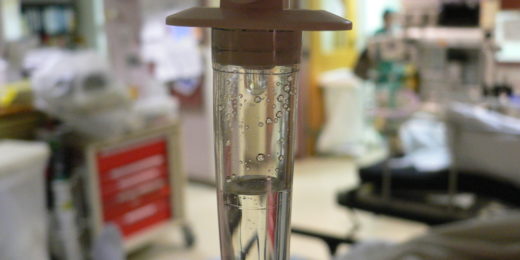As a second-year medical student with a limited clinical skillset, I find that sometimes the most valuable thing I can offer patients is conversation. Lucky for me, I also love to talk.
And when a patient is not in a state to speak or participate in conversation, I turn to family members in the room, who carry with them a version of the patient's illness that perhaps does not get articulated often enough. I use these conversations to communicate to loved ones that they are more than just an accessory to care; they are a necessary part of the treatment.
These family members tell me stories of a patient that I've never met: the patient before illness and hospitalization. For me, these stories become intertwined in the patient's medical history. It gives me an idea of what the patient's baseline is outside of normal lab values and test results -- what a regular day in their life looks like when they're healthy. As we've learned in our clinic skills class, understanding a patient's social history -- their family, job and other aspects of their personal life -- is crucial to providing context for illness and structuring treatment. Illness scripts and diagnostic frameworks don't tell me what happy and healthy looks like for individual patients; but these conversations with their loved ones can.
However, outside of fulfilling the duties of a health care provider, I find these conversations provide a much-needed break for the family members from the usual bleak medical framework of patient encounters. Parents who have grown accustomed to being in hospital rooms tell me embarrassing stories about their child before she was taken ill, and we laugh together. Significant others share their concerns, remembering to lace their words with optimism, and allow me to listen to a raw aspect of their love story.
In these brief moments, I temporarily set aside the notebook and pen and embrace the human side of patient care. I know that later in my career, I won't always be able to pause for these kinds of conversations; but as a medical student, I feel that I can offer some attention to families to ease their emotional burden -- at least a little -- while the patient is being cared for.
Recently, I found myself playing the role of "family member of a patient" when a relative ended up in the hospital for several weeks.
That experience helped me to understand how such a situation can cloud a person's mind. I was hundreds of miles away, but I thought constantly of his health in spite of the distractions of everyday life. In the early days, when doctors did not have a diagnosis for his condition, the fear of the unknown would creep up and ambush me whenever my thoughts idly wandered -- doing the laundry, reading the paper, dancing at a party.
I often felt guilty, too -- that I was enjoying myself while he was struggling, and that I wasn't doing enough to help him.
This wasn't a topic I would bring up in conversations with my friends or colleagues, but I would talk about it if asked. And while I wasn't waiting around for someone to ask me about my perspective, I felt so much lighter when I did get the chance to share what was on my mind with a classmate.
The experience made me realize the impact that a simple "And how has this been for you?" can have.
It's a question I make sure to ask a patient's loved ones, these days, whenever the opportunity arises.
Stanford Medicine Unplugged is a forum for students to chronicle their experiences in medical school. The student-penned entries appear on Scope once a week during the academic year; the entire blog series can be found in the Stanford Medicine Unplugged category.
Tasnim Ahmed is a second-year medical student from Bangladesh and Queens, New York. She has a background in cognitive neuroscience and education. Her interests include global health, women's health, and embroidery (for her own health).
Photo by Nicole De Khors






